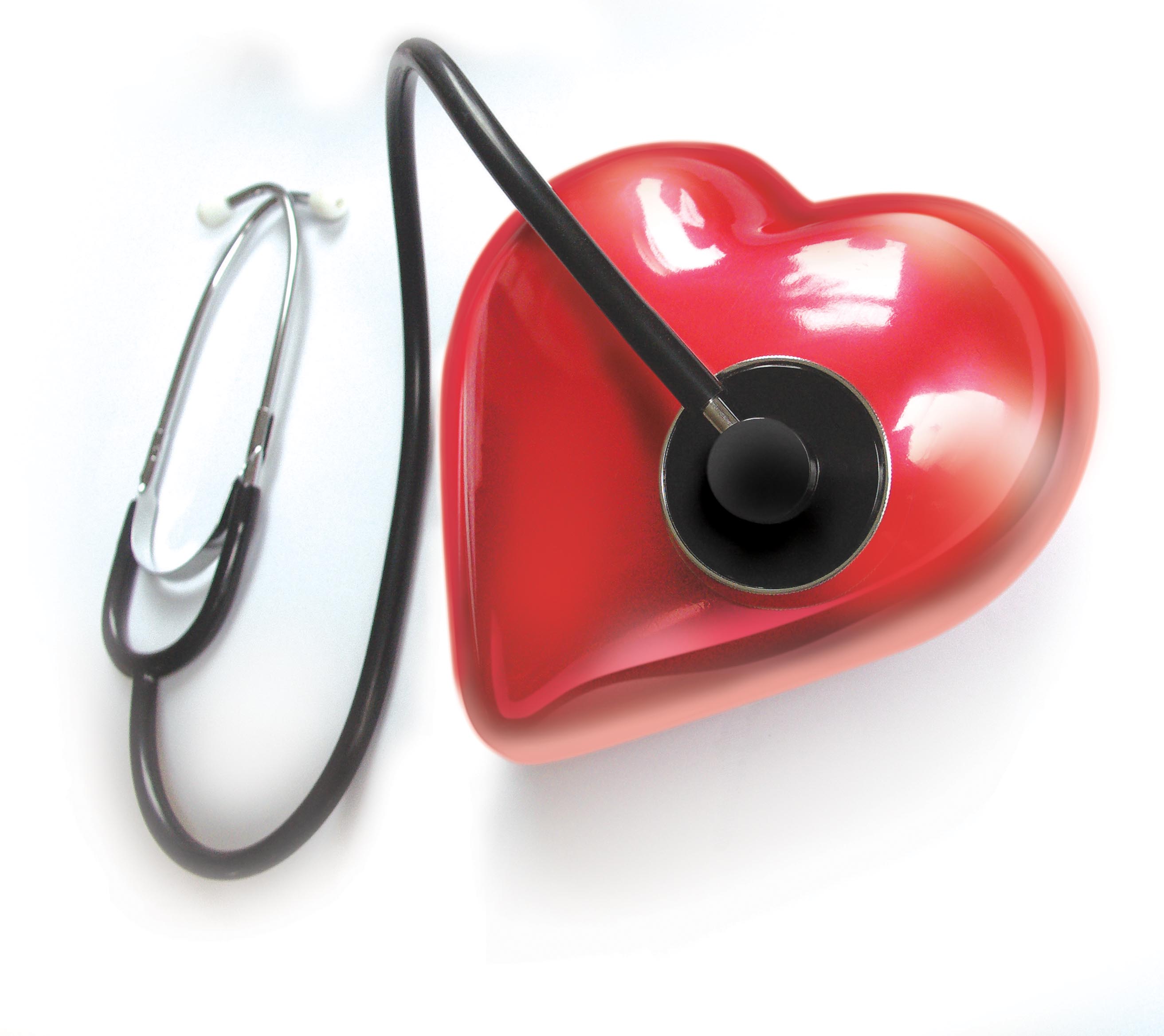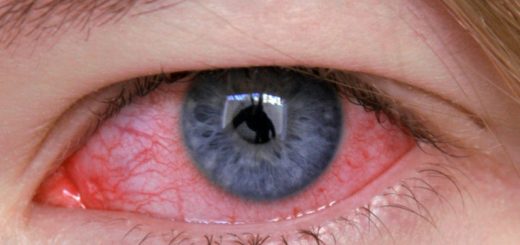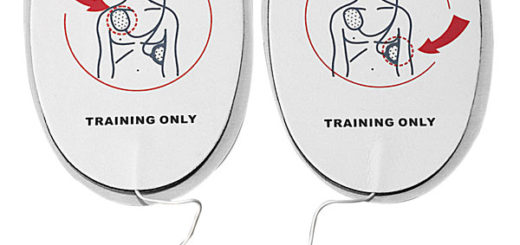Choking on Saliva: What to Do? 5 Steps to Follow
Did you know that the human body produces anywhere between 0.5 to 2 litres of water every day? Well, it’s true, and most of us swallow it without even noticing. However, at times, a person can inhale saliva accidentally, which causes them to choke on it.
Saliva can also accumulate in a person’s throat and make it difficult for them to breathe. Given the daily production of saliva in our bodies, I would say it’s very important to know what to do when you or someone around you starts to choke on saliva.
The salivary glands are responsible for producing the clear liquid known as saliva. It aids in maintaining our oral health by getting rid of the food and bacteria from our mouth and also helps with digestion.
There are certain respiratory, muscular, and neurological conditions that affect a human being’s ability to swallow and make it difficult for them to cough. In some situations, proactive measures may have to be taken so that the person can clear the saliva in their throat along with other secretions.
Do you want to learn about the factors that could lead someone to choke on saliva? If yes, then we’re here to assist you with that information. In this article, we will be discussing the symptoms and causes of choking on saliva and what to do when such a situation arises.
Symptoms of Choking on Saliva
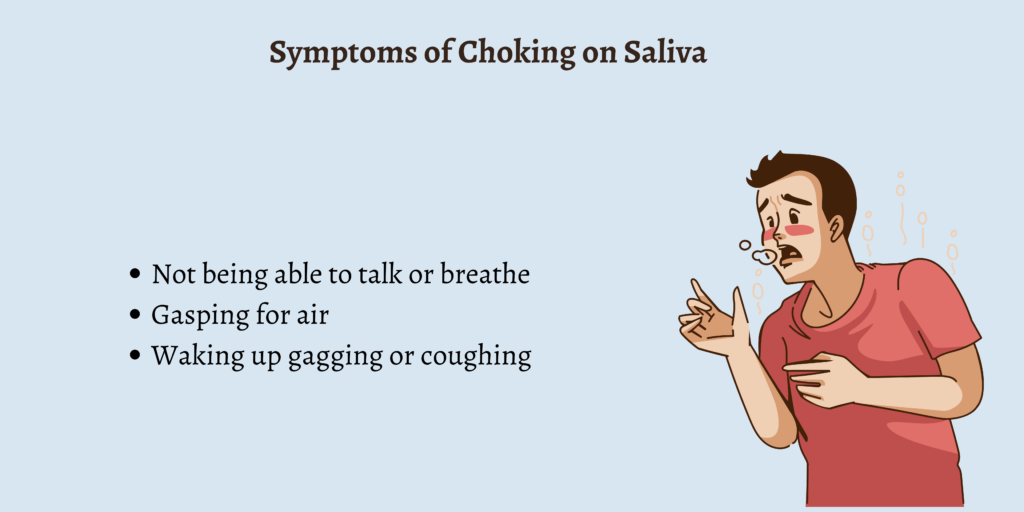
When the muscles that are involved in the act of swallowing stop functioning properly or get weakened due to other health issues, it can cause a person to choke on their saliva. If someone hasn’t been eating or drinking, and even then, they cough or gag, it’s a sign of choking on saliva.
Some of the other symptoms include:
- Not being able to talk or breathe
- Gasping for air
- Waking up gagging or coughing
Common Causes of Choking on Saliva
A couple of the common causes of choking on saliva are listed below:
- Acid reflux: Acid reflux can irritate the lining of a person’s oesophagus, thereby making it difficult for them to swallow. As a result of this, saliva pools in the back of their mouth, which can cause them to choke on it.
- Sleep-related abnormal swallowing: Some people suffer from a disorder wherein saliva gets collected in the mouth while they’re asleep. The saliva then flows into their lungs, causing choking and aspiration.
- Tumors or lesions in the throat: Cancerous or benign tumours or lesions in the throat could end up narrowing a person’s oesophagus. Hence, a person can have difficulty swallowing their saliva, leading them to choke on it.
- Neurological disorders: Certain neurological disorders can be damaging to the nerves in the back of a person’s throat. Examples of such disorders include Parkinson’s disease and Lou Gehrig’s disease. This can cause swallowing difficulties and trigger choking.
- Excessive talking: As we talk, the production of saliva continues. If a person keeps talking without stopping to swallow, it can trigger choking.
- Respiratory issues or allergies: When respiratory issues or allergies are responsible for triggering saliva, it may not always easily flow down a person’s throat. This causes a collection of saliva in the person’s mouth, which leads to choking.
What to Do When Someone is Choking on Saliva
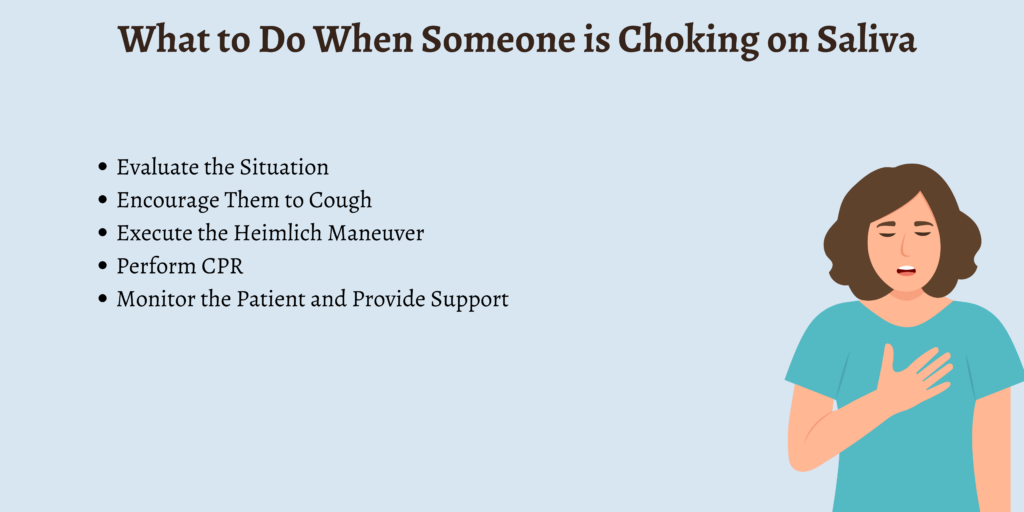
Since saliva is 99% water, let us tell you the steps to take to help someone who is choking on water, which are as follows:
Evaluate the Situation
The first step is to assess how difficult the situation is. Check the symptoms of choking that the person is displaying, such as having difficulty breathing or speaking or if they are clutching their throat.
Take a look at their overall condition, including how responsive they are and if their skin is turning bluish.
Encourage Them to Cough
If the patient is coughing, encourage them to keep coughing. Keep reassuring them that coughing is the natural mechanism of the body through which foreign objects, such as water, get removed from the airway. Let them know how important forceful coughing is as it aids in ousting the water from the airway.
Remember to not forcefully pat the person on the back during this time. Although this could be the first instinct of many as they’re trying to help someone, this can often push the saliva further down their airway and make the situation worse. Stay calm and remain with the person while they’re coughing.
Execute the Heimlich Maneuver
In case the patient is not breathing or coughing effectively, it could be time for you to execute the Heimlich manoeuvre, which is abdominal thrust. This is how you can perform it:
- Stand behind the individual and wrap their waist with your arms.
- Place one of your fists below their ribcage and slightly above their navel.
- Use your other hand to grab your fist.
- Give thrusts in the upward direction quickly into their abdomen. This will help in forcing out the water or any other foreign object from their airway.
- Keep repeating the thrusts till all the water is out and the person can cough or breathe properly.
Perform CPR
If the person isn’t breathing or they lose consciousness, it is vital that you begin CPR on them immediately. Here’s how you can do so:
- Start with the chest compressions by placing the heel of one of your hands on the centre of the chest right below the line of the nipple. By placing your other hand on top, interlock your fingers.
- Apply your body weight while giving these chest compressions by following the rate of 100-120 compressions per minute.
- Give two rescue breaths after every 30 chest compressions. This is to be done by tilting their head back slightly, pinching their nose shut, and giving a breath that lasts for about a second.
- Keep continuing this cycle of chest compressions and rescue breaths until the person starts breathing again or till the arrival of medical help.
Monitor the Patient and Provide Support
Once the water or saliva gets out of the person’s system and they start to breathe or cough, make sure to remain by their side and provide support and reassurance. Keep monitoring their condition and be prepared to call for medical attention even if they appear to have recovered.
FAQs
What causes choking on saliva?
The topmost reason why people choke on saliva is because they have trouble swallowing.
How do you stop yourself from choking on saliva?
If you’re choking on saliva, try to cough gently so that your airway gets cleared. Try to spit out the excess saliva so as to prevent further choking.
Should you drink water when choking?
No, you shouldn’t drink water when you’re choking.
Why am I constantly swallowing saliva?
Underlying medical conditions are often the reason behind a person choking on saliva. Make sure to get yourself checked because you might have an infection or a nervous system disorder.
Conclusion
While choking on saliva may not be something everyone thinks about, it definitely ignites fear in some and can be quite painful to experience.
If you have a well-functioning neurological and respiratory system, you don’t need to fret about this happening to you. However, for anyone who suffers from a medical condition that causes them to choke on their saliva, choking is indeed a legitimate concern.
In case you suffer from such a condition or any other risk factors, make sure to discuss it with your doctor so as to come up with a plan that can reduce the risk of choking.

